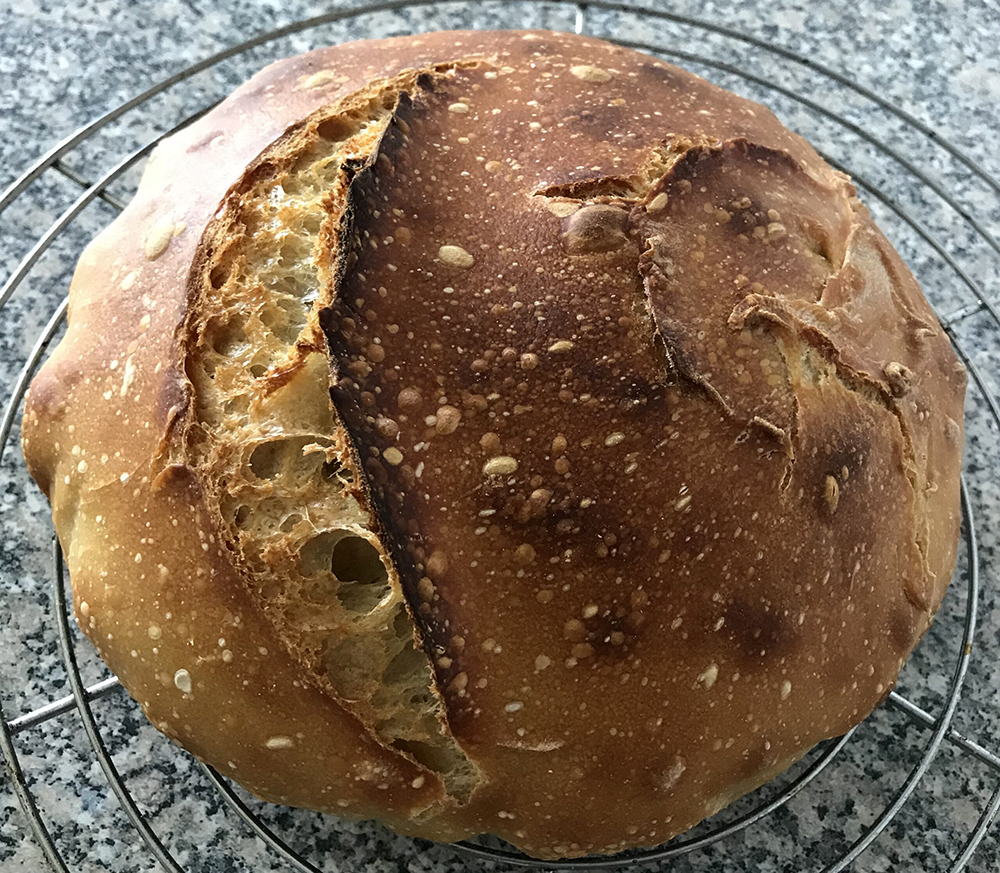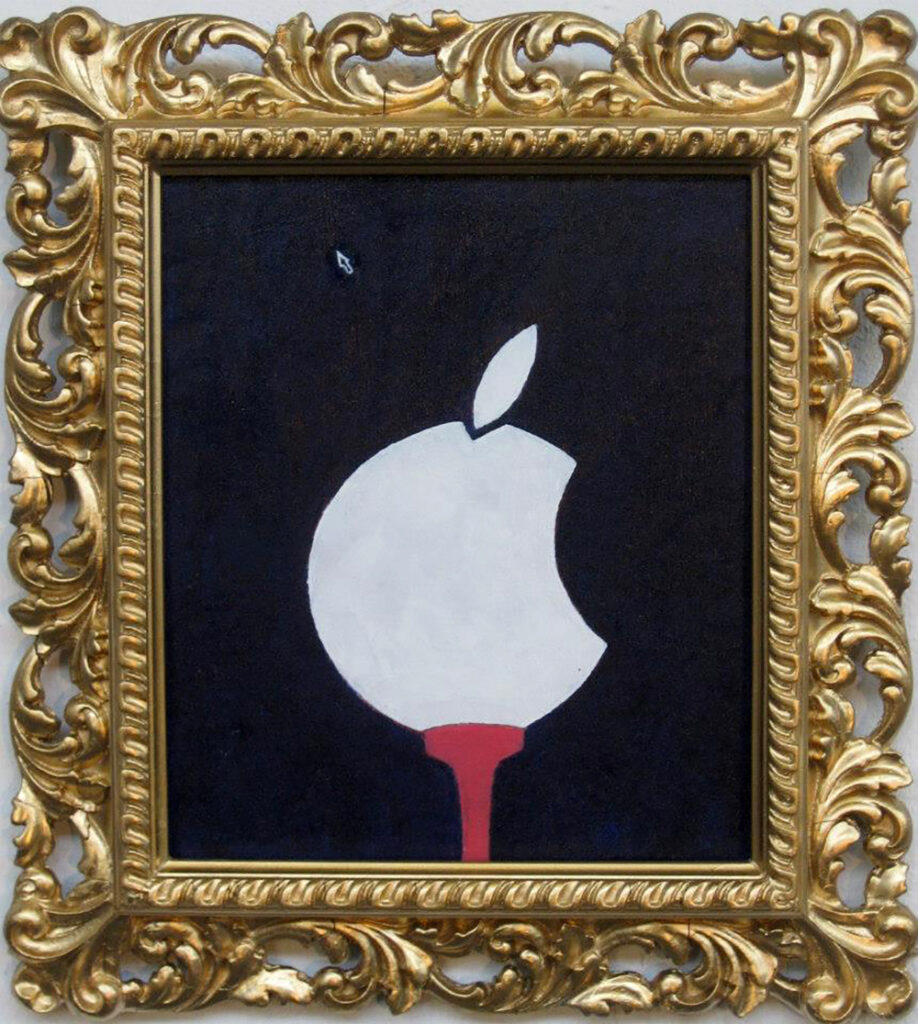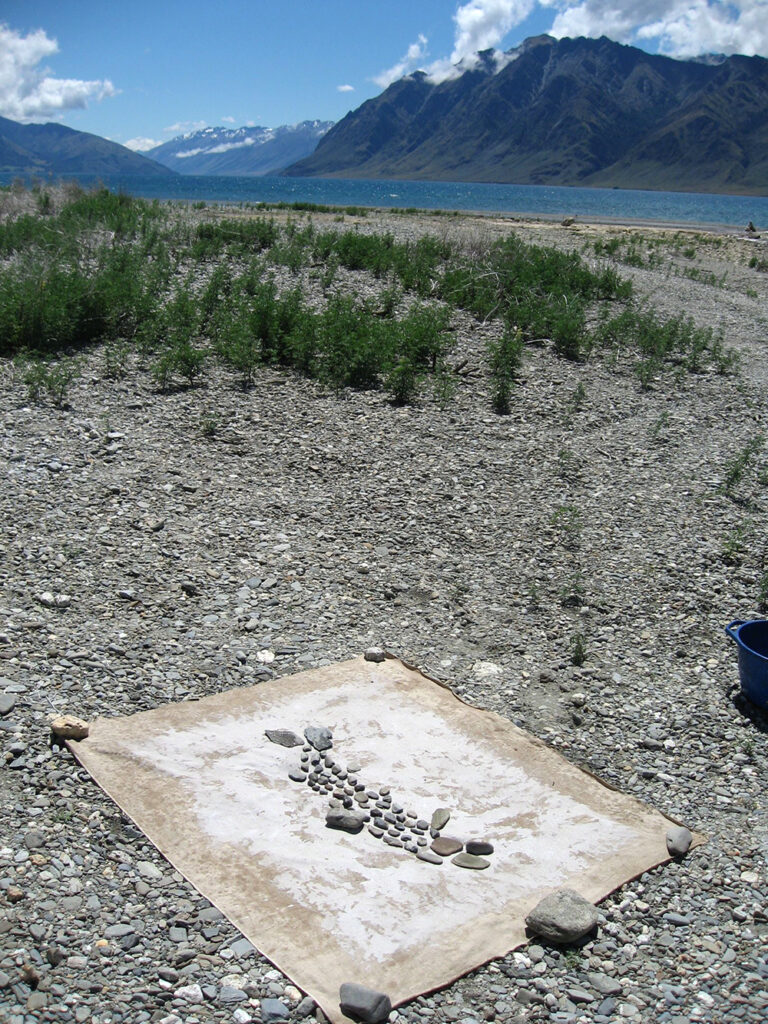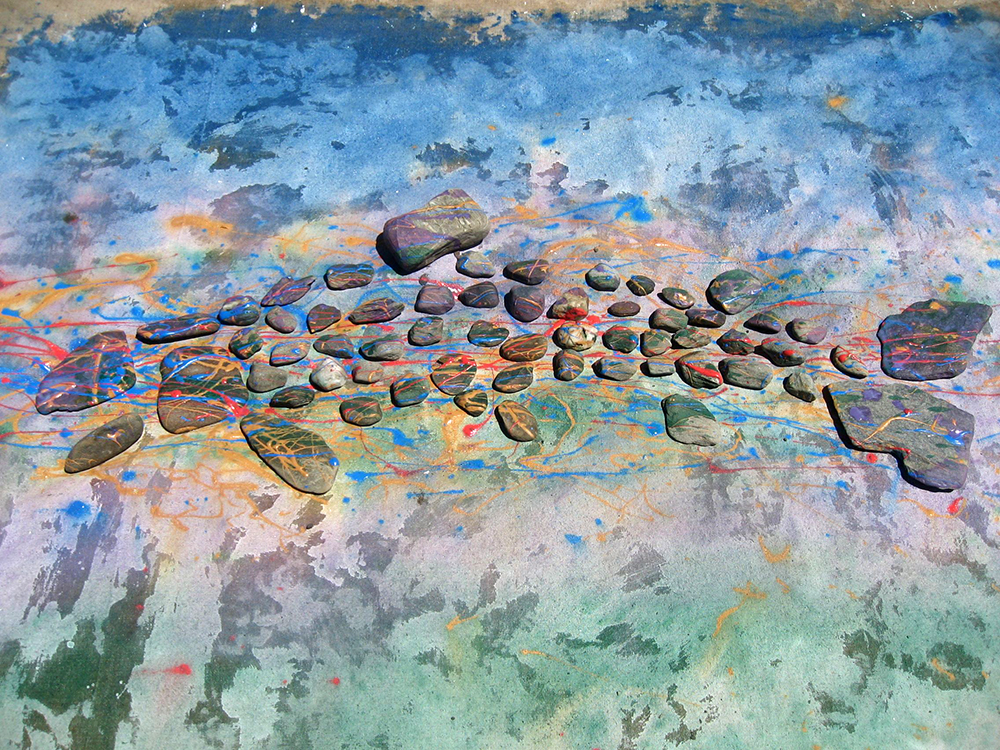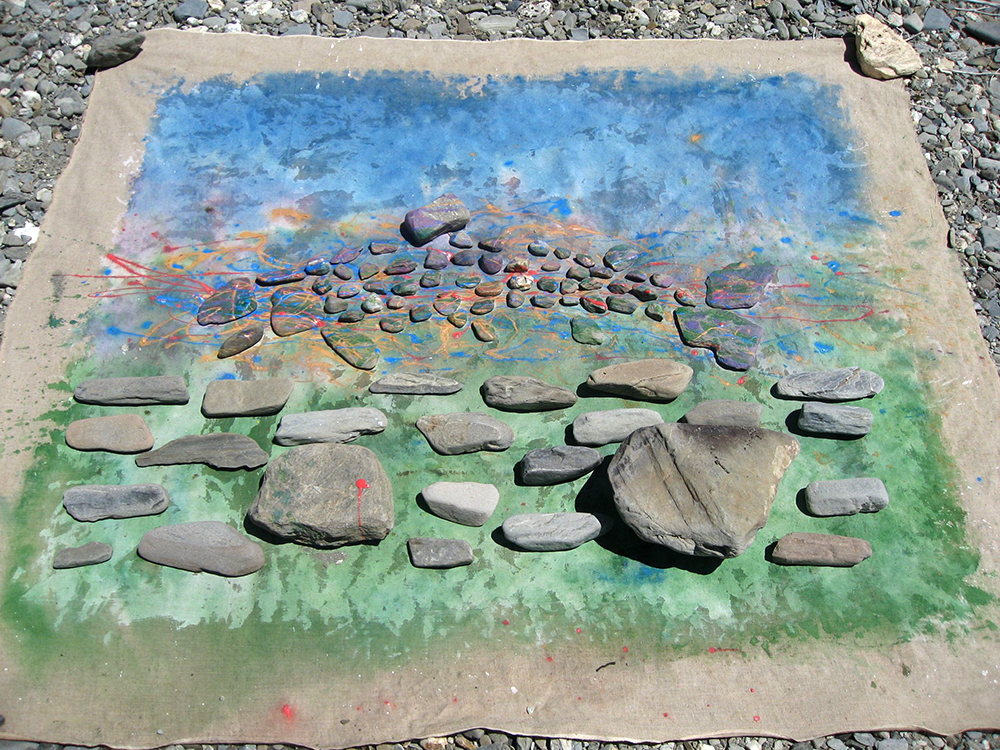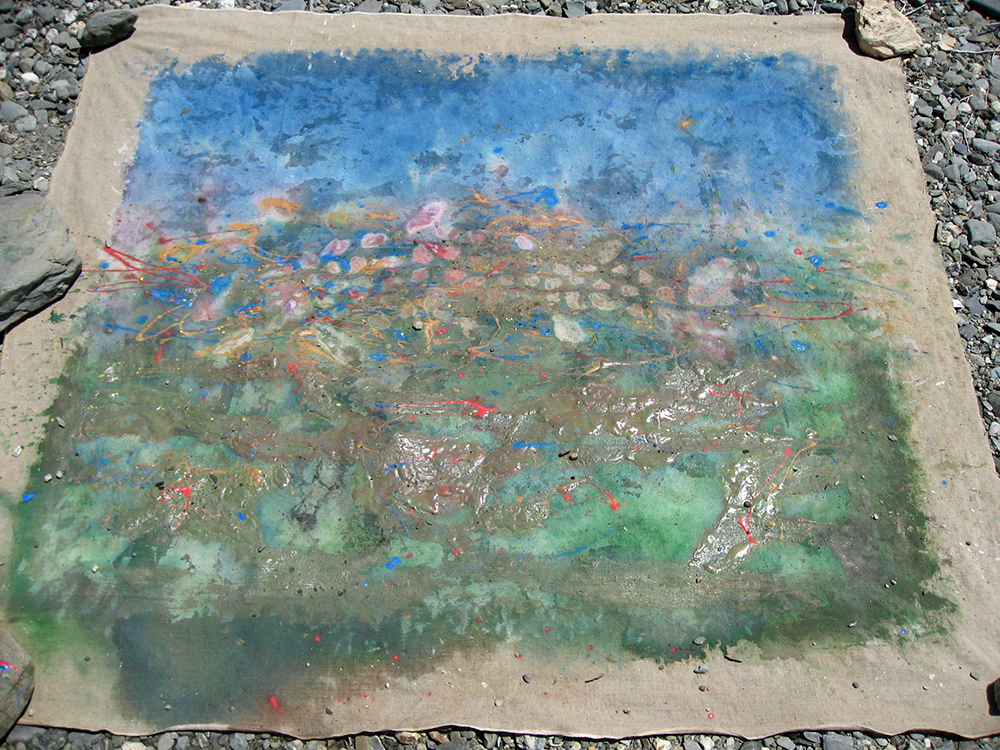Geneva, Friday 24 April 2020
A culinary advance! Donald the sourdough starter enjoyed his third day of half-discard. We spotted an overripe banana in the fruit bowl. It was just crying out to be mashed in with the sourdough discard and My O My!…. Golly Gee!…. Call the police!!
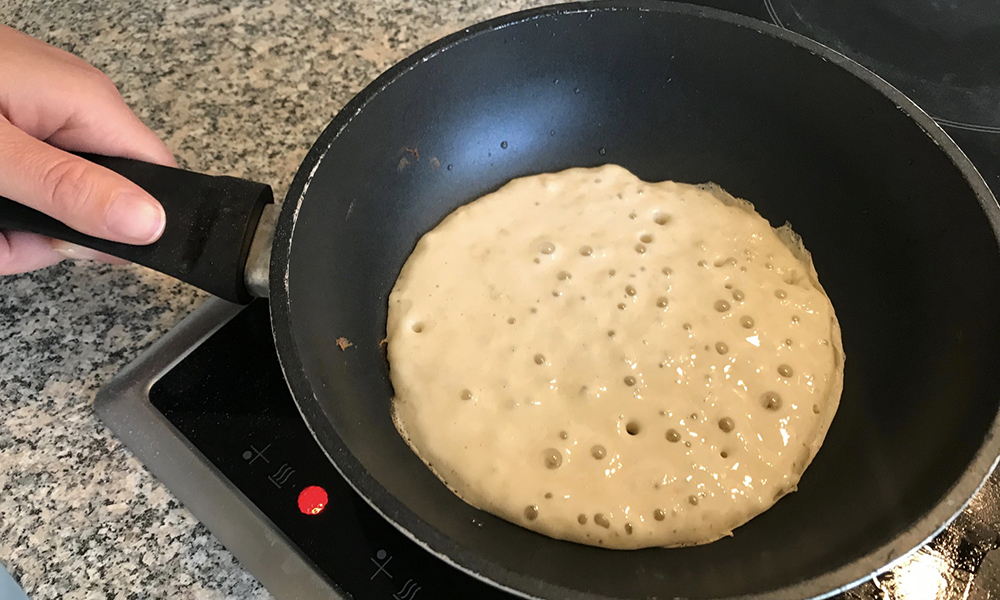
Fry it up. Turn it out onto a plate; add a little lemon juice and some strawberry jam. Prepare for transport to heaven! Just incredible what we’ve learn’t during the lockdown.
To more serious matters. We only had one lecture at medical school on legal medicine. One phrase has always stayed in my mind…. “Never, ever, give casual medical advice.” What the wise teacher was telling us was that whatever the context of a consultation it is, in legal terms, a consultation nevertheless and therefore carries ethical implications and legal responsibilities. In other words, don’t give medical advice to a friend over the dinner table because, if this advice proves to be wrong, you could be deemed professionally negligent. We were given some knee-tremblingly awful examples of just how badly things can go wrong.
I wonder…. If a President of a country – surrounded by medical advisers – gives a whole nation unsolicited medical advice on TV about treatment of a certain condition and that advice is both wrong and dangerous, what responsibility does he have for any deaths that might arise from people following his advice? It would be strange if DT had absolutely no responsibility for the death of an American who slugs a few pints of bleach as a sure cure for COVID-19. As far as I can see, in relation to treatment for COVID-19, most of the world’s leaders leave their health professionals to dispense advice to the public; and most such advice out there on the net pertains to what not to take.
Casual medical advice is at once worrisome and fascinating. Here’s a conversation I have had many times to avoid the casual consultation. “Robin, can I ask you a medical question… ” I take a breath in and wonder whether to admit that I have forgotten most of the medicine I ever learnt. “Before you ask, you should know that I only ever give one piece of medical advice: that is, to go and see a doctor!” A moment of head scratching on the part of my non-patient. “OK, but my problem is (….description of problem.)” I give the standard reply: “Well, if you’re worried, you really should go and see your doctor.” The response is usually “Oh, do you think so? Thank you so much, Robin.” It seems that people are quite happy when a clueless doctor tells them they should see their doctor!
“Is there a doctor on the flight?” Aargh! The rule is to establish whether the person really wants to see a doctor or really needs first aid. Like that, you are either a doctor going through with a consultation (remember to keep notes) or you are a member of the general public helping with first aid. The call for a doctor is often made by the cabin crew and not the person concerned; this is an exercise of passing on responsibility. Credentials are never checked. I know of one doctor who, realising that his services were requested by the pilot and not the passenger, put in an invoice to the airline for his professional services.
So here’s one that I put to you, the reader. Some years ago, I gave unsolicited medical advice. I was in the changing room of a squash club. I had just showered and another man, unknown to me, walked past me – also having just showered – with a towel wrapped around his waist. I noticed on the small of his back a large black irregular mole that I thought could well have been a malignant melanoma. As it was on his back, it was quite possible he didn’t know it was there. Dilemma! Did I have an obligation to give my opinion or should I say nothing as he had not consulted me? By the time we were both dressed, I had made a decision. The exchange went something like this: “Excuse me, Sir! We don’t know each other. I’m a doctor. I couldn’t help noticing that you have a mole on your back and I think you should see your doctor about it.” The man locked eyes with me. “Well, thanks for ruining my evening!” he said and walked out. Did I do the right thing?
The putting: My wife had a particularly stressful day at work. I won by quite some margin. That’s me up, 18-9.
Here’s today’s painting. (If you can’t paint trees, don’t paint trees!)


